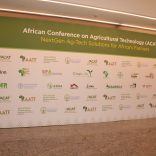Mozambique keeps cashew nut reference price unchanged at 45 meticais
Mozambique: Mauritius group ETG appeals to president over ‘pigeon pea saga’

Lusa
The leader of the ETG conglomerate has appealed to the Mozambican president to intervene in the “pigeonpea saga”, in which he claims to be the victim of “expropriation” of assets and property by the company Royal Group Limitada (RGL).
In his letter to the Mozambican head of state, dated 26 December and to which Lusa had access on Thursday, Maheshkumar Raojibhai Patel begins by congratulating Filipe Nyusi for his “leadership” in restoring Mozambique’s “reputation” “as a safe haven” for investors, following the “hidden debts” scandal.
“He will know more than anyone how difficult it is to restore a tarnished reputation,” he described.
In the letter, the chairman of the Mauritius-based conglomerate complains of “extraordinary events” that have been taking place for several months in the port town of Nacala, Nampula province, northern Mozambique, with the “generalised theft and expropriation” of properties by RGL with the “misuse” of state bodies, jeopardising the export of agricultural products, namely pigeon peas destined for India.
“This ongoing saga risks jeopardising the fortunes of many thousands of Mozambican farmers,” he observes, pointing out that the judicial process involving RGL “has been frustrating” and “often” not followed through. At the root of the conflict, which has been going on for around 14 months and has so far received no comment from the Mozambican government, is the claim by RGL, which accuses ETG and other companies that export pigeon peas to India – which buys almost all of the country’s production – of being responsible for the accusation that it had exported genetically modified soya to that country.
In October 2022, the Nampula Provincial Court ordered the suspension of all exports by ETG and other groups also accused by RGL in this case. The following day, the Nampula Provincial Court granted RGL an authorisation to seize ETG’s assets, including real estate and ships, and froze its bank accounts.
In the meantime, with bail of US$60 million (€55.1 million) imposed by the local court, the group is trying to stop RGL, which took possession of it in Nacala, from sending abroad a cargo worth that amount in pigeon peas and other food products.
“Recent events have exacerbated this issue in a way that we have never witnessed before in our African operations in over 40 years,” Patel laments in the letter, also complaining that employees of the conglomerate in Mozambique have been “arrested and imprisoned without due process and without legitimate arguments”.
“Our properties have been raided with the help of the judicial authorities and their contents are being […] seized and taken illegally. It is important to note that these contents are mortgaged by various banks and are not owned by ETG,” he emphasises.
“In Mozambique, we’ve been in the market for over 24 years and historically we’ve had the support of the Mozambican government, which has recognised our efforts to improve the lot of farmers by providing a global value chain for their businesses,” he also points out, guaranteeing that the conglomerate plays “a fundamental role in the lives of hundreds of thousands of farmers” in the country.
“If the value chain continues to be disrupted, it will have a major negative impact on their livelihoods, as well as on the agricultural sector of the Mozambican economy in general. Our presence in Mozambique has resulted in the employment of thousands of people (…) ETG’s processing facilities offer opportunities for more than 1,500 employees, most of whom are women,” he explains.
He recalls that the conglomerate’s shareholders include Japan’s Mitsui, South Africa’s state-owned Public Investment Corporation, the largest asset manager on the African continent, and Saudi Arabia’s SABIC, one of the world’s leading fertiliser producers.
“A large amount of the products stolen from our facilities,” he says, have been given as collateral to the conglomerate’s financiers, including the African Development Bank (AfDB), Afrexim Bank, IFC, JICA and others, who are “deeply concerned and will be contacting the government separately”.
“I am convinced that, given your anti-corruption stance, you may not be aware of these events and will realise the damage this could cause to Mozambique’s reputation and livelihoods,” he emphasised, addressing Nyusi and guaranteeing his “desire” to avoid the “media, diplomatic and legal escalation” in this process.
“And to seek your immediate intervention to resolve this issue and, in doing so, reduce the risk to Mozambique’s investment and commercial environment. We also believe that you share the belief that Mozambique must make it clear that it is a jurisdiction where global capital can invest and not a country where global investors will lose their capital and be subjected to threats and intimidation,” he concludes.












Leave a Reply
Be the First to Comment!
You must be logged in to post a comment.
You must be logged in to post a comment.